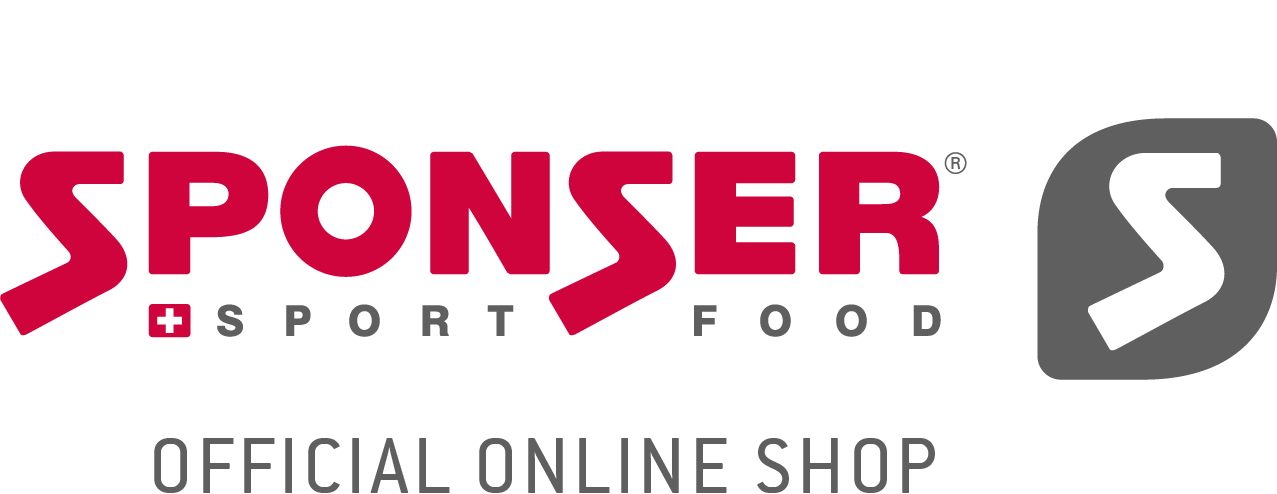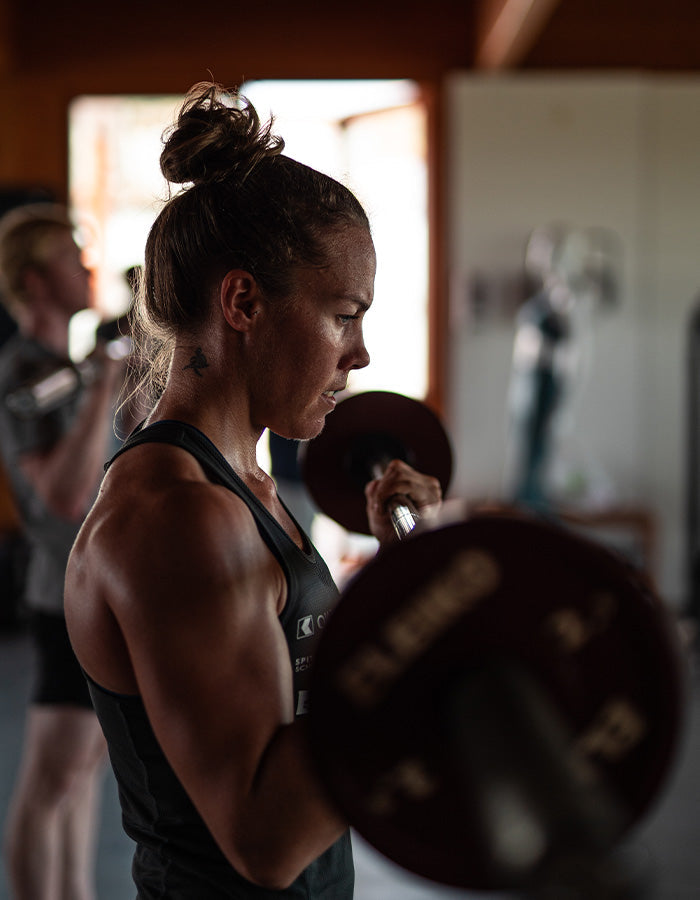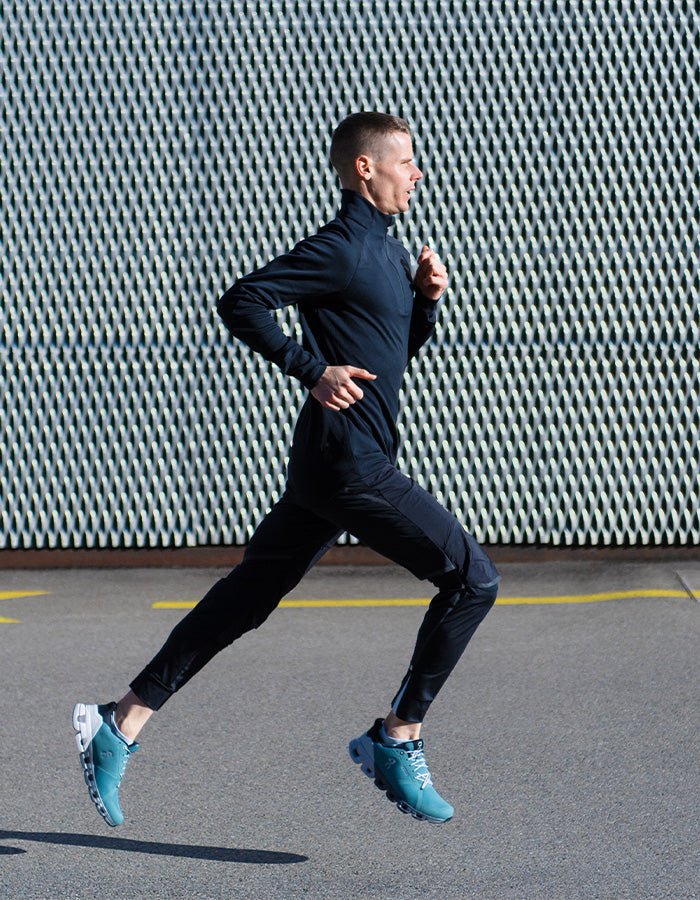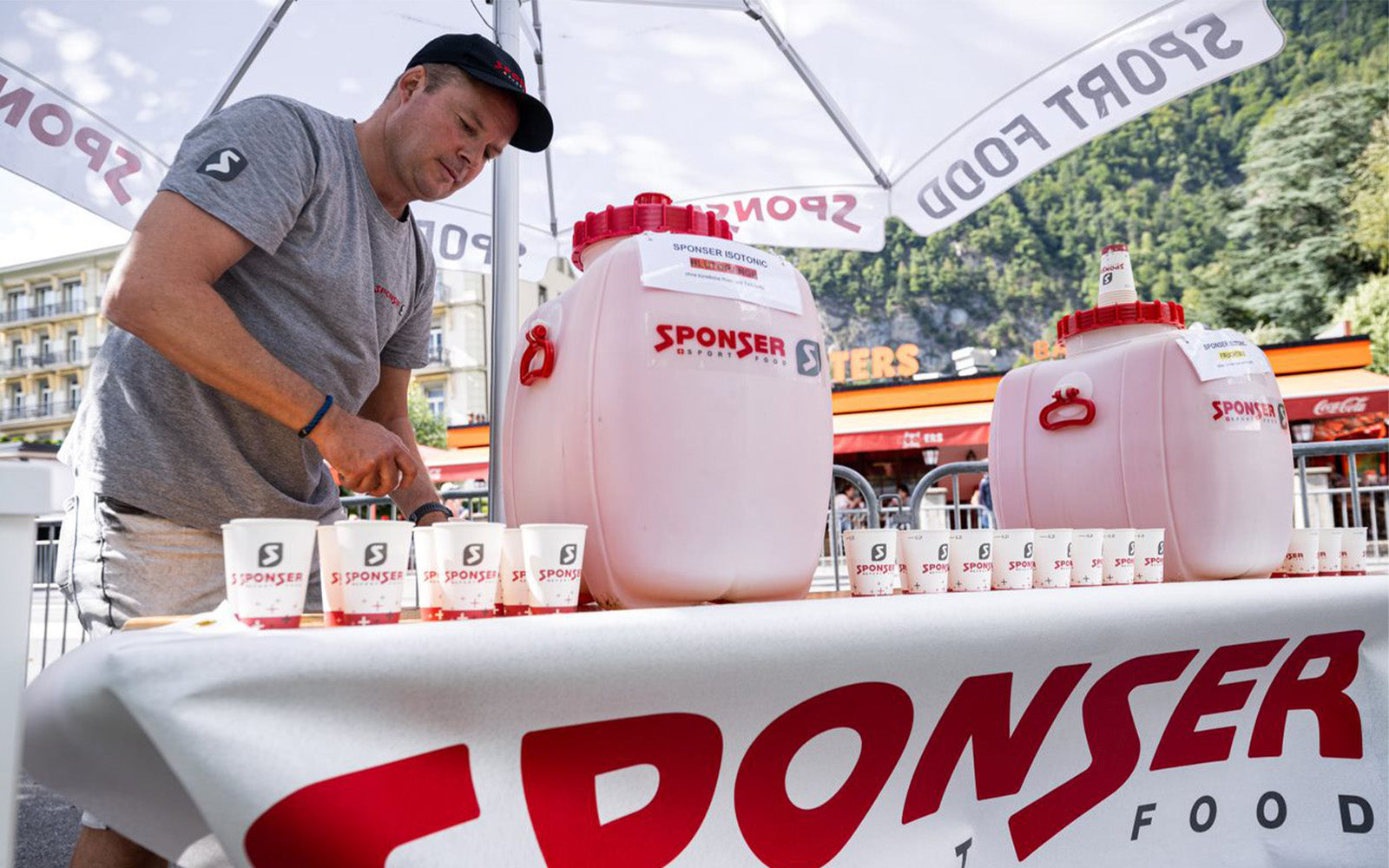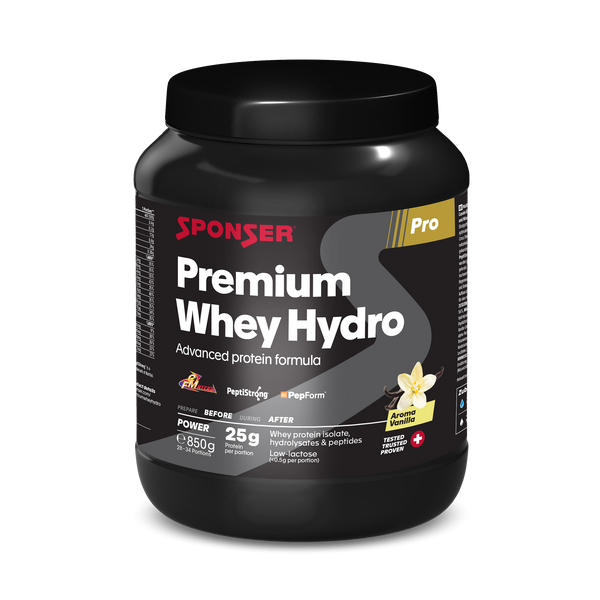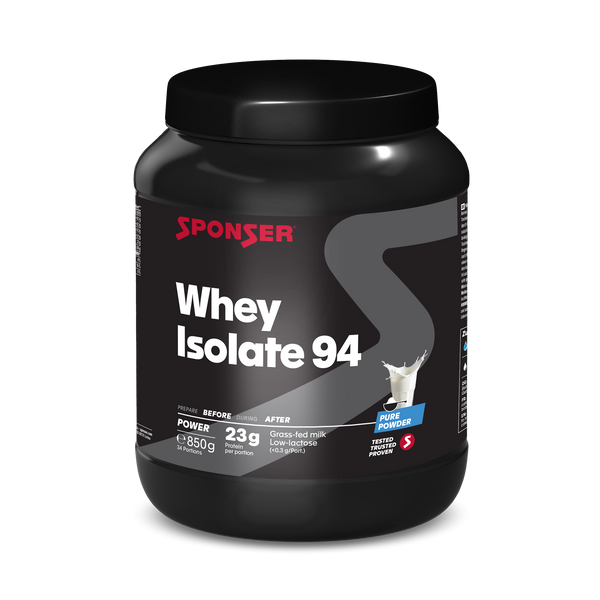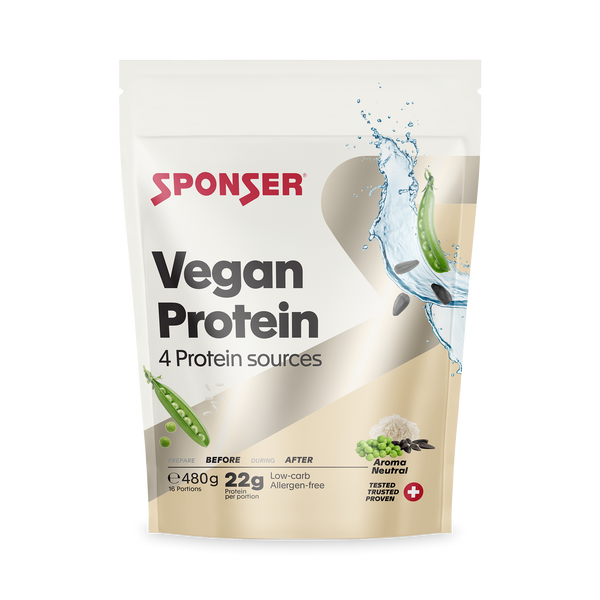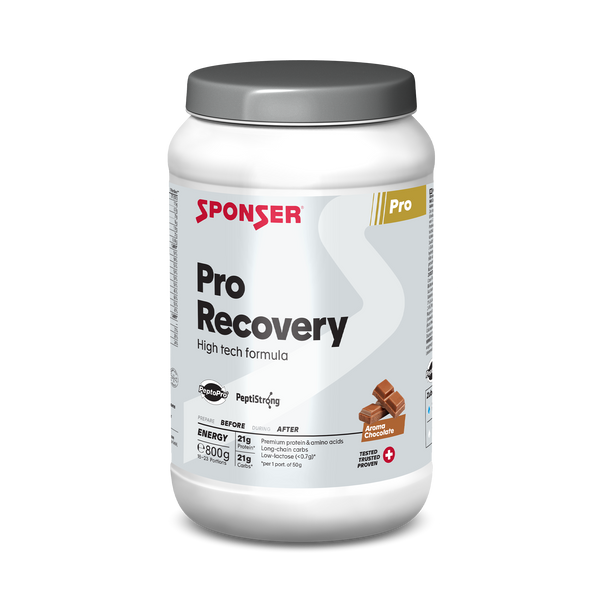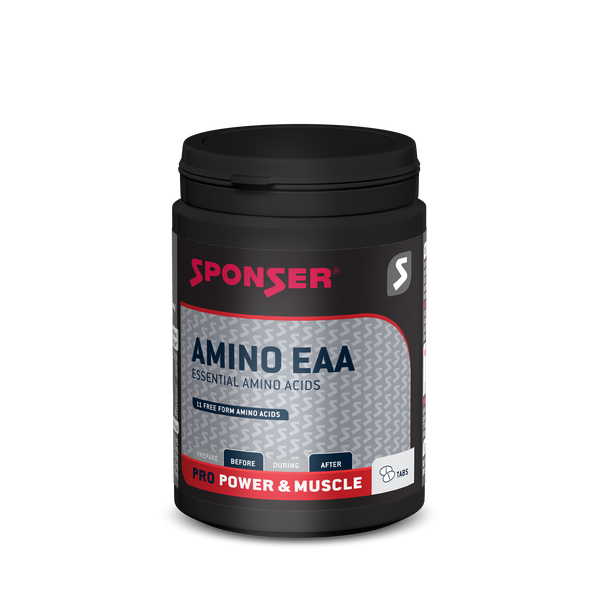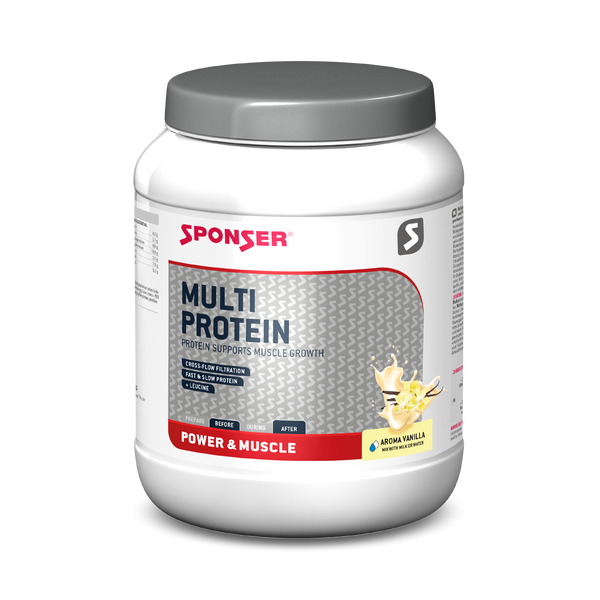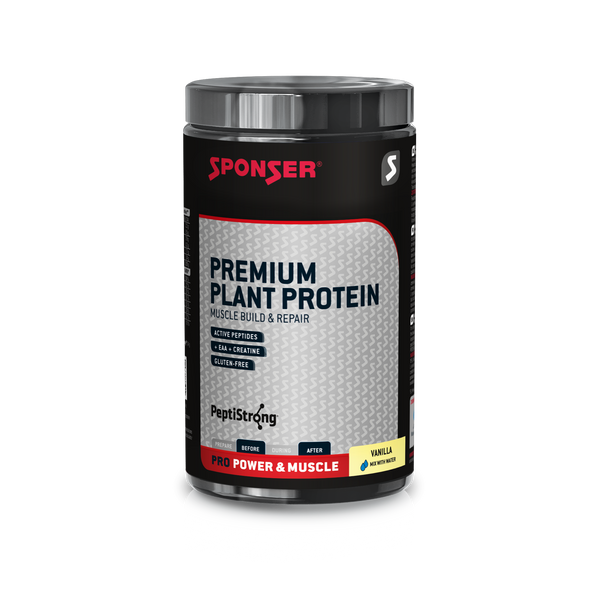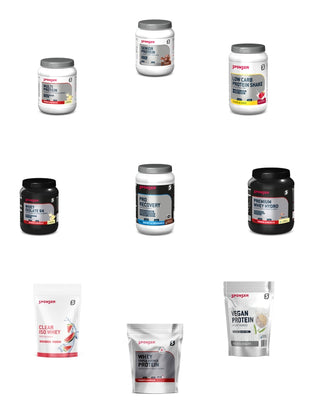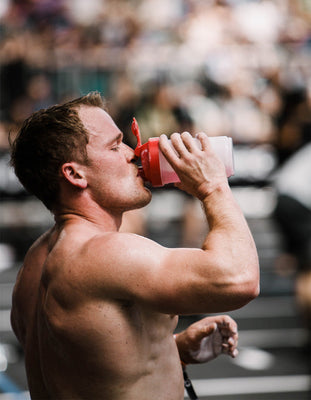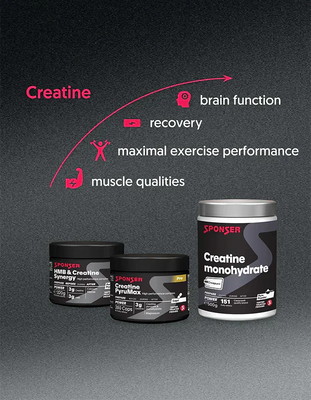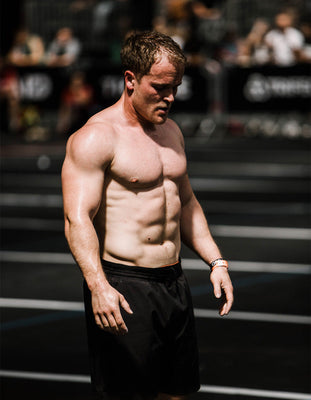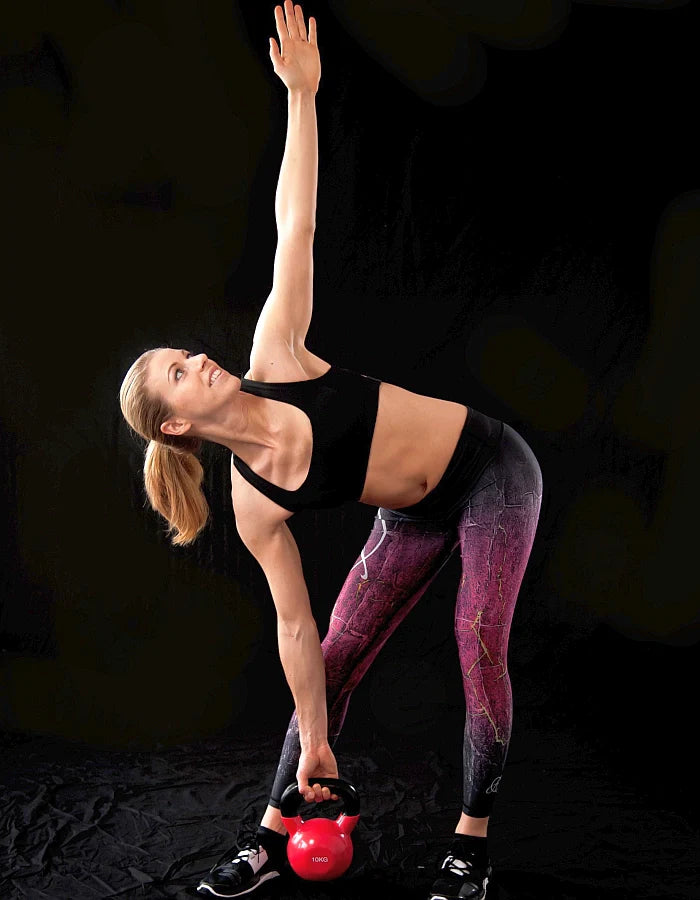
Photo credit: Karabulakastan/Pixabay
ISSN recommendations on protein intake for healthy, exercising individuals
The International Society of Sports Nutrition (ISSN) provides an objective and critical overview on protein intake for healthy, exercising individuals. Based on the currently available literature, the ISSN has defined the following 13 positions, which are commented by Yvonne Forster, SPONSER® nutritionist and food sciences engineer:
• «An acute exercise stimulus, particularly resistance exercise, and protein ingestion both stimulate muscle protein synthesis (MPS) and are synergistic when protein consumption occurs before or after resistance exercise.»
• «For building muscle mass and for maintaining muscle mass through a positive muscle protein balance, an overall daily protein intake in the range of 1.4–2.0 g protein/kg body weight/day (g/kg/d) is sufficient for most exercising individuals, a value that falls in line within the Acceptable Macronutrient Distribution Range published by the Institute of Medicine for protein.»
Comment: The World Health Organization (WHO) recommends a minimum intake of 0.8 g protein per kg body weight per day, which is often contradictory to the significantly higher doses of ISSN. It must be taken into account that the WHO values are always based on minimum requirements - also politically justified and influenced by ethical-ecological principles.
• «There is novel evidence that suggests higher protein intakes (>3.0 g/kg/d) may have positive effects on body composition in resistance-trained individuals (i.e., promote loss of fat mass).»
Comment: With an intake of >3 g protein per kg body weight per day, a diet has to be considered protein dominant. Since proteins have a very satiating effect, the general diet can be designed according to the «low carb» principle. In this case you should refrain from eating snacks containing carbohydrates. If a weight reduction is in the foreground, SPONSER® recommends the LOW CARB PROTEIN SHAKE. This protein shake additionally contains dietary fibres which also have a satiating effect and have a positive influence on our microbiome.
• «Recommendations regarding the optimal protein intake per serving for athletes to maximize MPS are mixed and are dependent upon age and recent resistance exercise stimuli. General recommendations are 0.25 g of a high-quality protein per kg of body weight, or an absolute dose of 20–40 g.»
Comment: SPONSER® designs the protein shakes generally with approx. 20-25 g protein per portion. The protein shakes can be taken with water or milk. If taken with water, increase the amount of powder. Exact recommendations for use are indicated on the packaging.
• «Acute protein doses should strive to contain 700–3000 mg of leucine and/or a higher relative leucine content, in addition to a balanced array of the essential amino acids (EAAs).»
Comment: AMINO EAA tablets from the SPONSER® range are particularly suitable for targeted amino acids intake. WHEY PROTEIN is naturally rich in BCAA (branch-chained amino acids) and therefore also rich in L-leucine.
• «These protein doses should ideally be evenly distributed, every 3–4 h, across the day.»
Comment: This distribution results in approx. 5 protein portions, considering the food-free sleep phase. Usually lunch and dinner are hardly a problem to reach the recommended amount of protein. Breakfast and late evening meals before bed rest are often insufficient. WHEY PROTEIN, which can be added to any smoothies or muesli, is suitable for enriching breakfast. CASEIN is recommended for late meals. Casein has a slower emptying time from the stomach due to its gelling property. This ensures a continuous flow of amino acids throughout the night, which minimises the catabolic night phase. MULTI PROTEIN, which also contains 2/3 microfiltered casein, is a valuable alternative.
• «The optimal time period during which to ingest protein is likely a matter of individual tolerance, since benefits are derived from pre- or post-workout ingestion; however, the anabolic effect of exercise is long-lasting (at least 24 h), but likely diminishes with increasing time post-exercise.»
• «While it is possible for physically active individuals to obtain their daily protein requirements through the consumption of whole foods, supplementation is a practical way of ensuring intake of adequate protein quality and quantity, while minimizing caloric intake, particularly for athletes who typically complete high volumes of training.»
• «Rapidly digested proteins that contain high proportions of essential amino acids (EAAs) and adequate leucine, are most effective in stimulating MPS.»
Comment: AMINO EAA are tablets with free-form essential amino acids that are suitable for a targeted EAA intake, as well as for supplementing or optimizing the protein intake from the general diet.
• «Different types and quality of protein can affect amino acid bioavailability following protein supplementation.»
Comment: The bioavailability of amino acids and proteins depends on the dosage, the type of protein and, if given, the degree of hydrolysis. Vegetable protein sources such as soy, peas, etc. are not always complete in their amino acid profile. For this reason, vegan meals should combine different vegetable protein sources. VEGAN PROTEIN from SPONSER® contains a broad mix of vegetable protein sources with a very broad amino acid profile resulting in a high biological value. Nowadays, hydrolysed (predigested) proteins are also available on the market. This means that the complex protein structure is destroyed and the body requires less digestive work. Particularly sophisticated products therefore contain a mix of high-quality intact protein sources such as protein isolate, protein hydrolysate and free amino acids, as is the case in PREMIUM WHEY HYDRO, for example.
• «Athletes should consider focusing on whole food sources of protein that contain all of the EAAs (i.e., it is the EAAs that are required to stimulate MPS).»
Comment: Protein supplements from SPONSER® generally contain the entire spectrum of essential amino acids
• «Endurance athletes should focus on achieving adequate carbohydrate intake to promote optimal performance; the addition of protein may help to offset muscle damage and promote recovery.»
Comment: In endurance sports, the stimuli are usually set differently, but good quality training also leads to exhaustion. The protein supplements of SPONSER® are therefore also suitable for the regeneration support of endurance athletes. Since the carbohydrate supply of endurance athletes is not limited to the same extent as that of strength athletes, PRO RECOVERY with natural sweetening and moderate carbohydrate content is very suitable for regeneration support.
• «Pre-sleep casein protein intake (30–40 g) provides increases in overnight MPS and metabolic rate without influencing lipolysis.»
Comment: CASEIN is recommended for late meals as it causes a slow emptying of the stomach. This ensures a continuous flow of amino acids throughout the night, which minimises the catabolic night phase.
Related articles
on » strength
on » muscle building
on » protein
on » science
shop » power & muscle
goal » muscle & strength
Literature
Jäger et al. (2017): International Society of Sports Nutrition Position Stand: protein and exercise. J Int Soc Sports Nutr, 14(20).
Author: Yvonne Forster Nigg
dipl. eng. food sciences UAS
dipl. dietitian HS
